Cliff’s Take: Injustice Is Real, but Not All Americans Willing to See It

COVID-19 and Race Relations—this too is part of our pandemic world. Repeatedly, I have noted here that our national narrative is the “tale of two Americas”—blue, red; rich, poor; white, brown. Nothing more attests to this disparate American experience than what we are seeing in the George Floyd killing and corresponding public outcry surrounding it.
Slavery and its aftermath have been America’s original sin. COVID-19 has only brought into clear relief the huge experiential gulf between people of color and white America. Compared to the past, we see more inclusivity when we look at who is going out to protest today—a potpourri of social class and ethnicity. But the race chasm still remains.
Below I detail the most revelatory data points of the week.
- COVID-19 reveals racial divide. We know that the pandemic has disproportionately affected people of color, who have been more likely to lose their jobs or know someone who has died as a result of COVID-19 than their white countrymen and women. But only a plurality of Americans believe that this is true. There is a chasm in perception along racial and partisan lines. The data speak for themselves—Americans have long been coexisting in a state of dueling realities.
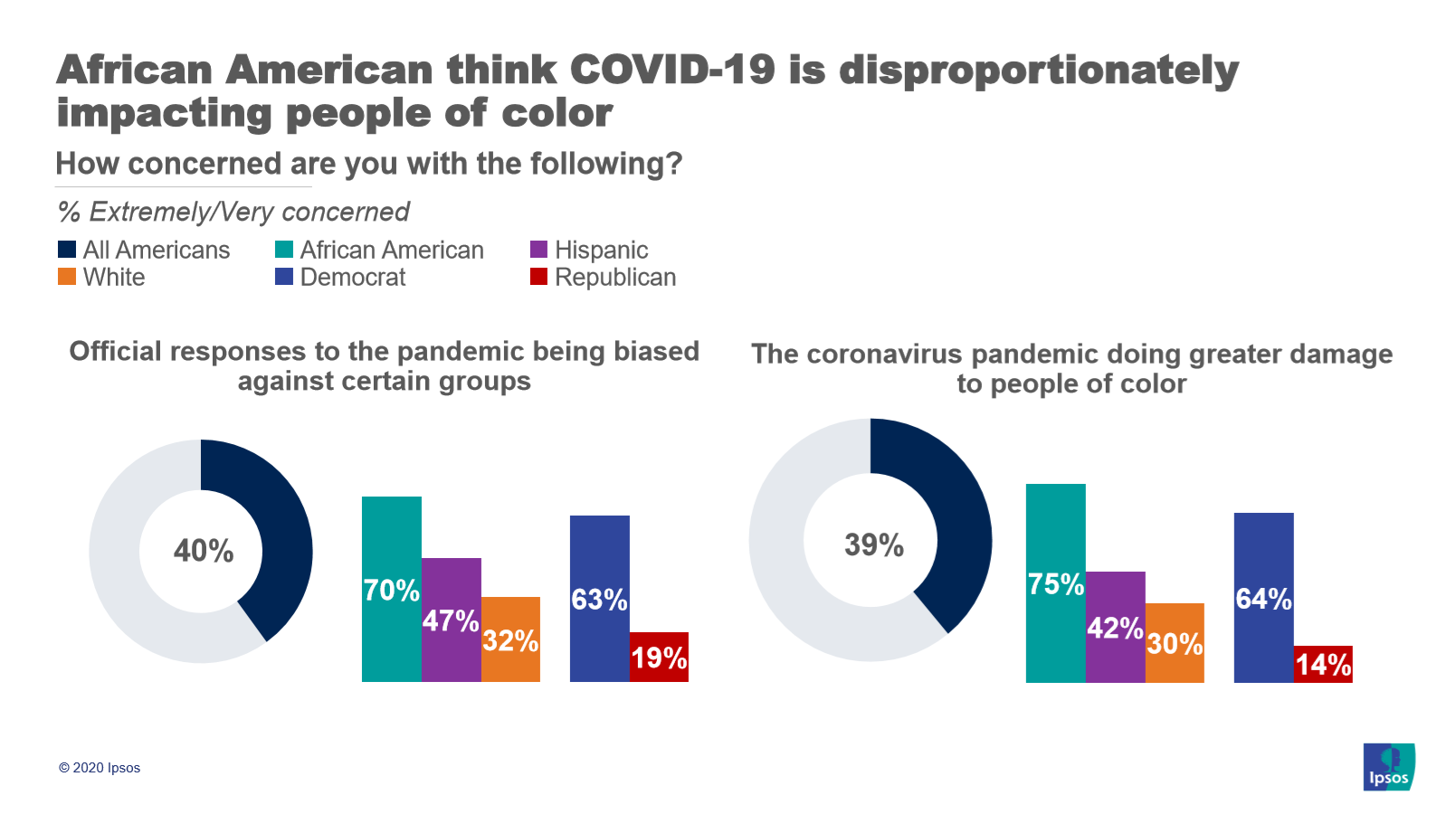
- But some progress: Floyd killing seen as a police problem. America is beginning to wake up to the reality of police violence. In our most recent ABC News/Ipsos poll, a majority of Americans see the Floyd killing as a police problem. This is what our mobile supercomputers have given us—glimpses of the African American experience with the police. It’s not so easy to brush off painful realities when the truth is there, plain for everyone to see. This said, huge racial and political differences remain in our trust of the police. This makes sense given our differential experience with them.
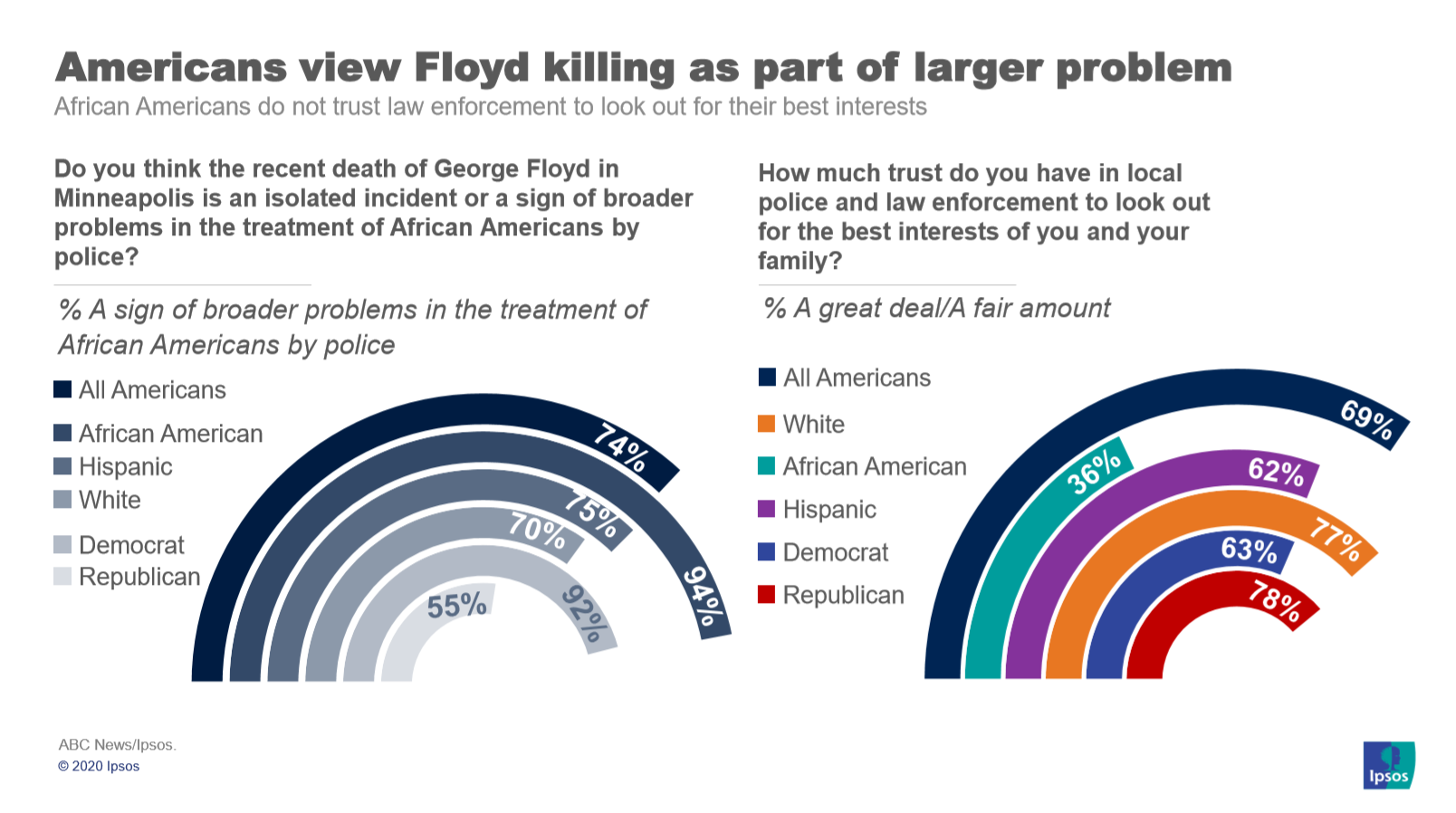
- Peaceful protest yes—violence no! A recent Reuters/Ipsos poll makes strikingly clear that America is in favor of peaceful protest. This is, at the end of the day, what America is all about—the right to assemble. But Americans are equally critical of violence. The message is clear—orderly protest.
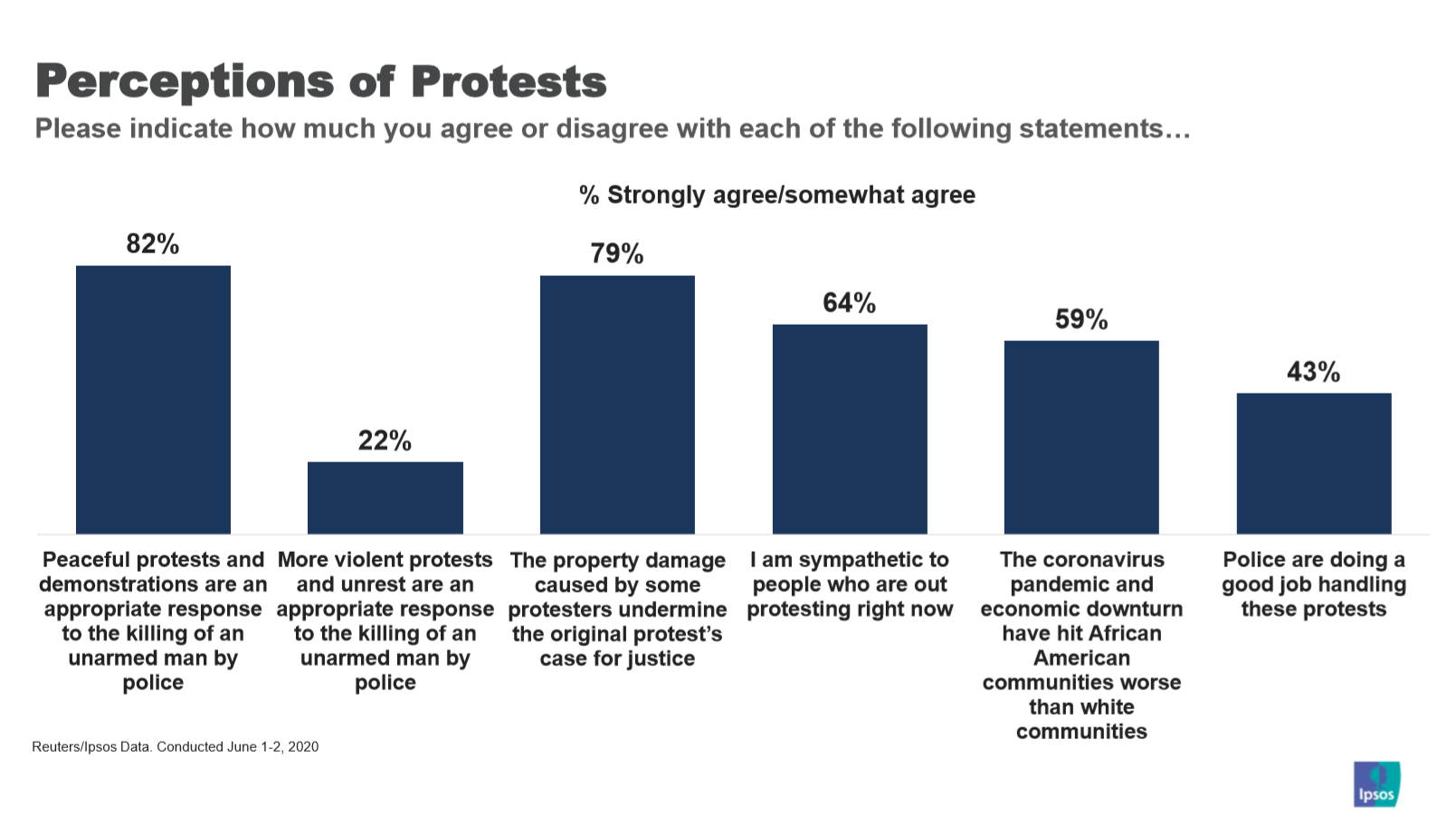
- But some partisanship in perceived legitimacy of protests. Again, overall the protests are seen as legitimate. But there still is a partisan divide, with Republicans more likely to disagree.
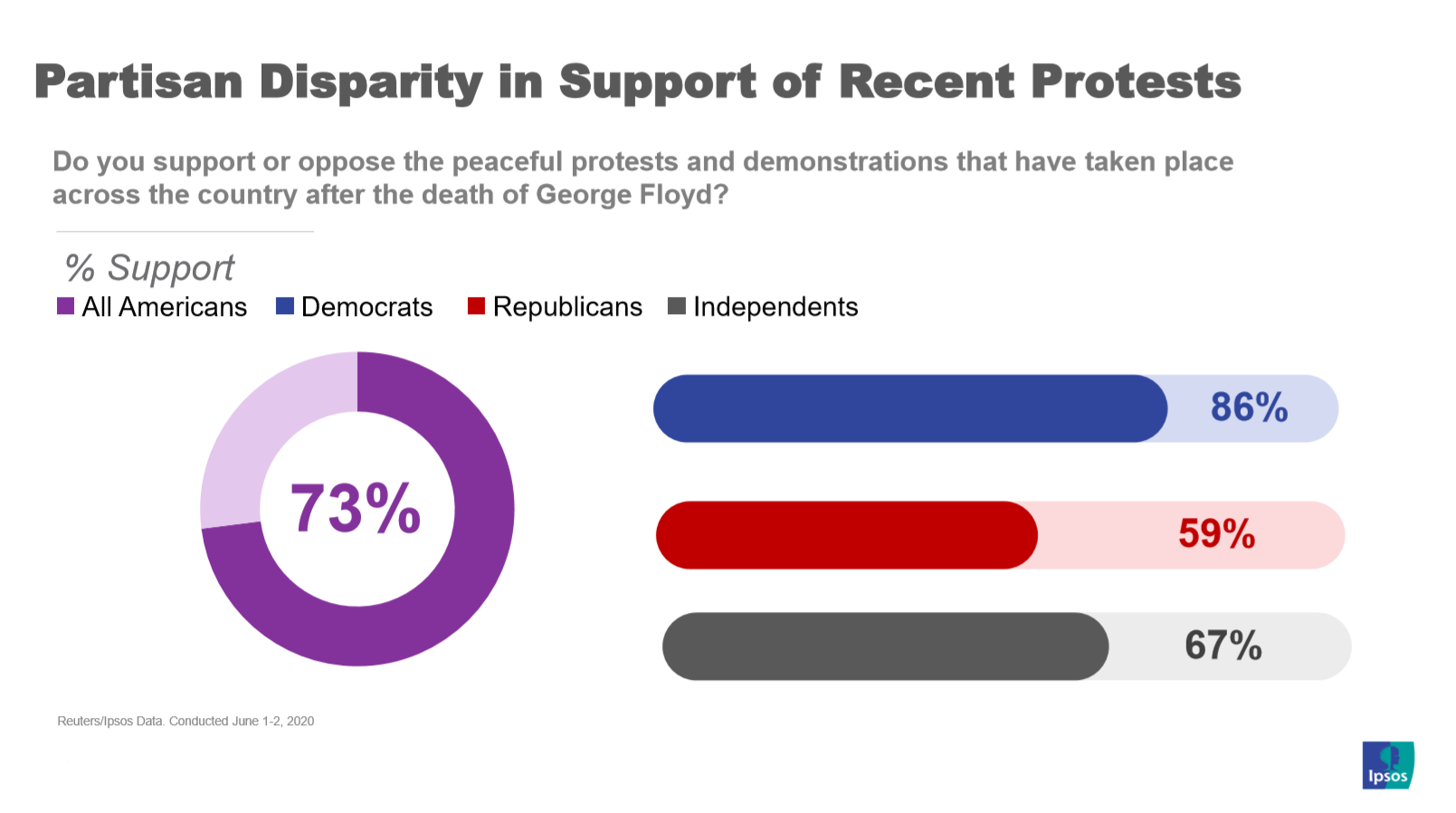
- Trump fails to make the grade on post-Floyd killing response. Trump's hardline “law and order” spin is missing the mark. Only about third of Americans approve of his handling of the George Floyd killing and its aftermath. Large partisan divides still exist (67% of Republicans, 9% of Democrats approve, per Reuters) but overall Americans are not impressed.
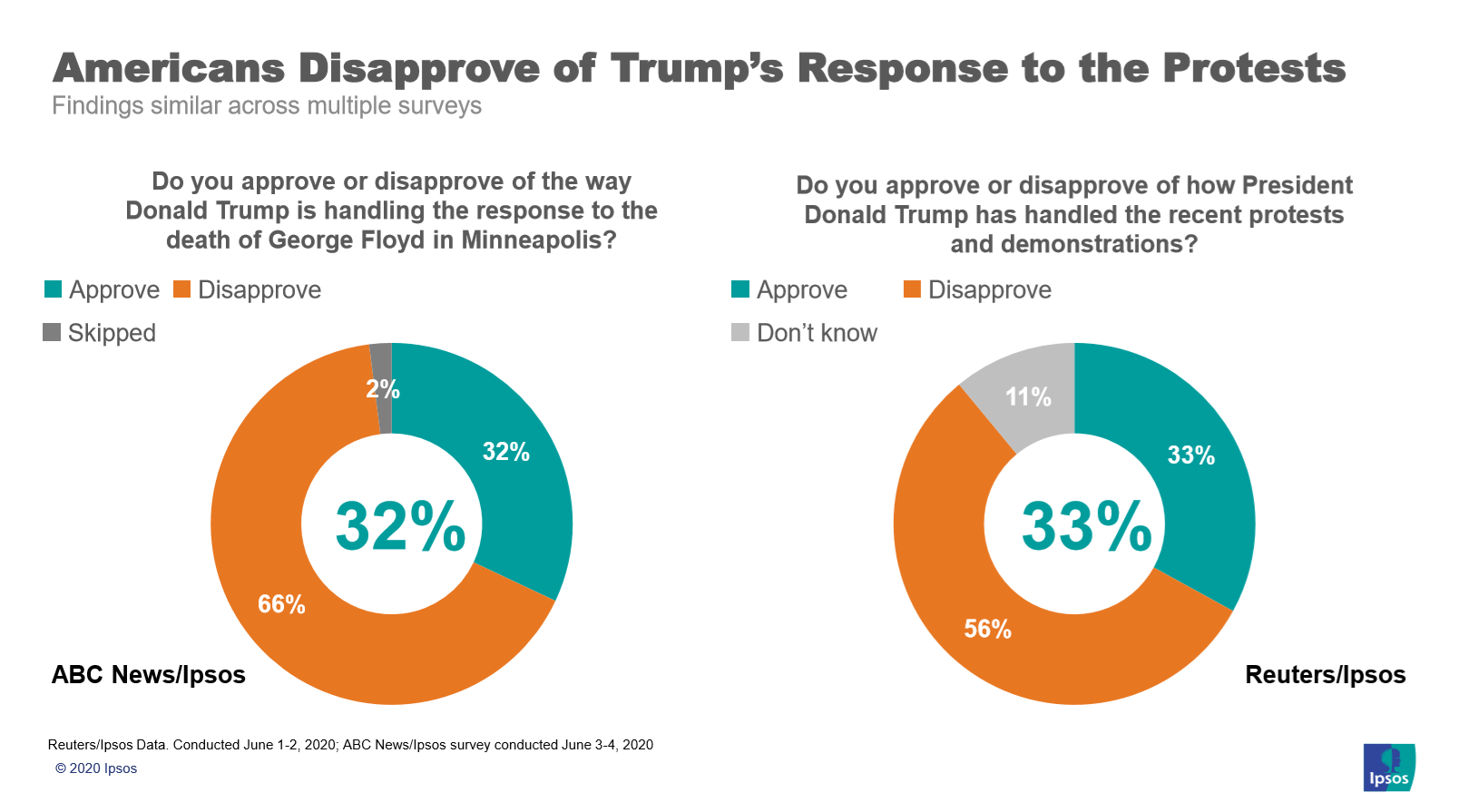
Please find my most recent POTUS interview as a recap. Again, be safe and be sane.
Lastly and most importantly, this is a time to listen to our fellow Americans. Let’s stop transmitting and start receiving. Empathy—the ability to put ourselves in the shoes of others—is key. That is what I am trying to do.
For more information, please contact:
Clifford Young
President, U.S.
Public Affairs
+1 202 420-2016
[email protected]
About Ipsos
Ipsos is now the third largest market research company in the world, present in 90 markets and employing more than 18,000 people.
Our research professionals, analysts and scientists have built unique multi-specialist capabilities that provide powerful insights into the actions, opinions and motivations of citizens, consumers, patients, customers or employees. Our 75 business solutions are based on primary data coming from our surveys, social media monitoring, and qualitative or observational techniques.
“Game Changers” — our tagline — summarizes our ambition to help our 5,000 clients to navigate more easily our deeply changing world.

![[WEBINAR] Ipsos Reputation Council 2025](/sites/default/files/styles/related_more_insights/public/ct/event/2025-08/thumbnail_0_6.jpg?itok=RJLhL75W)
![[WEBINAR] The Value of Higher Education in the New America](/sites/default/files/styles/related_more_insights/public/ct/event/2025-08/8.jpg?itok=vzOMLG_V)